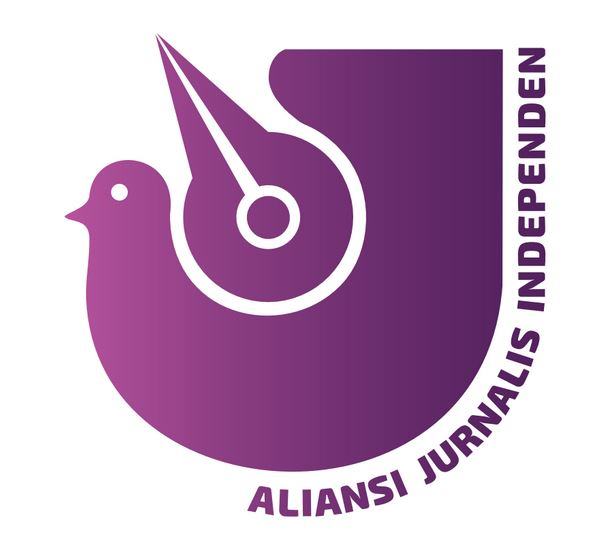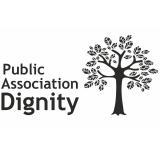
SRMO provides risk mitigation and safety assistance to NGOs & human rights defenders at risk in Afghanistan. SRMO envision Afghanistan where human rights and humanitarian principles are respected and everyone who speaks out, delivers humanitarian aid, and defends and promotes human rights or challenges human rights abuses or impunity, by non-violent means, is free from intimidation and attacks.
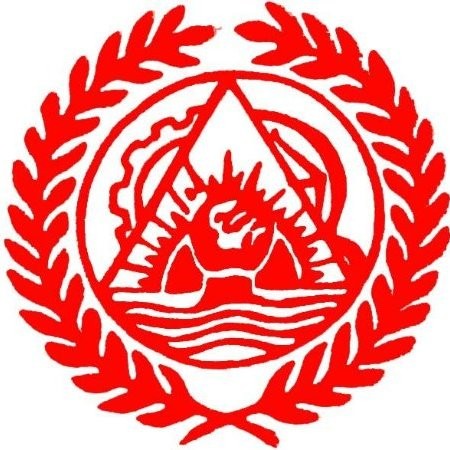
The Resource Integration Centre (RIC) was established in 1981 and is mainly a human rights organisation. RIC focuses on advocating for the vulnerable, older people of Bangladesh. RIC was first established by a group of politically left activists in 1981. In the mid-1980s Abul Haseeb Khan, the key figure of the democratic Anti-Erahsad movement, joined RIC and transformed the organisation to support the process of people’s empowerment to strengthen the positive human rights trends nationally.

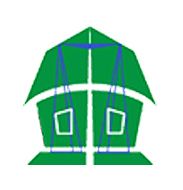
Madaripur Legal Aid Association (MLAA) was established in 1978 and is a rights- based organisation in the legal and human rights sector of Bangladesh.
It has a vision for establishing peace, justice and harmony in the community through various initiatives. MLAA upholds the philosophy that justice must be easily and equally accessible to every citizen
in a society governed by the rule of law. MLAA believes in integrity, justice, governance, and accountability in the way it works with oppressed, vulnerable and deprived people.
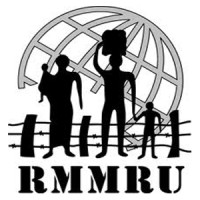
Refugee and Migratory Movements Research Unit (RMMRU) is a center for migration research, advocacy and training based at the University of Dhaka, Bangladesh. Since its inception in 1995, RMMRU has worked diligently to illuminate the potential of migration to initiate pro-poor growth and poverty reduction in South Asia. By cooperating with regional and global organizations, RMMRU continues to facilitate collaborative research that effectively integrates and links global migration discourse with regional grassroots programs in order to identify and eradicate the key issues affecting Bangladeshi migrants.


LICADHO was established in 1992. It is a national Cambodian human rights organisation which protects civil, political, economic and social rights in Cambodia and promotes respect for these human rights by the Cambodian Government and its institutions. LICADHO is therefore an advocate for the Cambodian people and a monitor of the Government through wide ranging human rights programmes.

The Cambodian Human Rights and Development Association (ADHOC) is an independent, non-partisan, non-profit and non-governmental human rights organization based and active in Cambodia since 1991. For more than 26 years, ADHOC has worked to address the absence of basic rights, freedoms and liberties in Cambodia by providing people with knowledge and understanding of human rights, law and democracy, and how to defend their rights and freedoms.
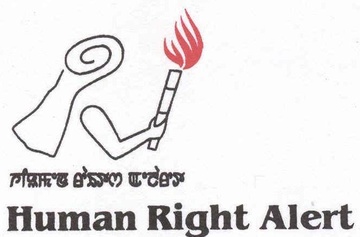

The Centre for Communication and Development Studies (CCDS) was set up in 2002 to promote open spaces for research, communication and dialogue on social justice, sustainable development, pluralism and transparent governance. CCDS works to build knowledge for social change, and to take information for social change out of the seminar rooms and to the people.

Founded in 2015, Quill Foundation is an autonomous institution engaging in research and advocacy in India. Quill's core work revolves around pertinent issues of human rights, justice, and equity, faced by the underprivileged sections of the people of India, especially Adivasis, Dalits, Muslims, women, sexual minorities and differently-abled persons. Presently, the Delhi based Law and Human Rights Cell (LHRC), under Quill, seeks to examine the many ways in which legal and judicial processes form the context of everyday injustices. And how the interface between law and the social world, constitutes citizens differently in terms of access to rights and justice. The underlying philosophy is the preamble and the fundamental rights of the constitution of India. Our slogan is "Back to the Constitution".

Rights Education And Development Centre (READ) is a registered Non Government Organizational established in the year 2001, with the objective to create a Society where every person has the Right to Life and Dignity. To bring sustainable change to the most marginalized communities in Tamil Nadu.

The Association of Parents of Disappeared Persons (APDP) was founded in 1994 in Jammu and Kashmir by the families of forcibly disappeared persons.
Our work has been focused on extensive research and documentation of cases of disappearances, unmarked graves, and litigation. We also do advocacy and a sustained campaign to demand to know the fate of the disappeared.
APDP is a persecuted organisation and has been carrying out its programmes in the face of extreme challenges and difficulties. APDP’s staff have been repeatedly attacked by the state agencies and are under constant surveillance.

Centre for the Sustainable Use of Natural and Social Resources (CSNR) is a registered non-profit, non-political, secular and non-governmental organization started during 1996. Initially, it played a crucial role in extending humanitarian assistance during post 1999 super-cyclone in Erasama block of Jagatsingpur and Korei block of Jajpur districts.

Jananeethi is a secular collective of human rights defenders, eminent jurists, retired judges, lawyers, academics, writers, thinkers, artists, social workers, and activists representing humanism, culture, creativity, and knowledge.
Jananeethi strives to defend life, dignity, liberty and other fundamental rights of all using law and legal systems as therapeutic agents. We adopt a rights-based, victim-centered approach for total healing through legal, social, psychological and emotional reparation.

SICHREM was established in 1995. Its vision is for human rights to be household concepts. Its mission is to empower the disempowered groups of Dalits, tribes, women and children and to protect their individual and collective rights for a dignified life through concerted action, education and advocacy by civil society.

People’s Watch was established in 1995. For over 20 years People’s Watch has fought for the protection and promotion of human rights in the Southern State of Tamil Nadu. In the past decade, People’s Watch shortened its name from ‘People’s Watch Tamil Nadu’ as it broadened its focus to national concerns. People’s Watch has expanded its activities beyond human rights monitoring and reporting.
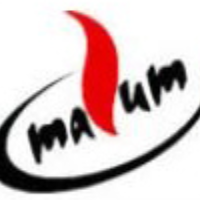
Banglar Manabadhikar Suraksha Mancha (MASUM) is based in West Bengal and was established in 1997, to form a platform for human rights activists based in West Bengal. The organisation pinpointed its initiatives to address custodial torture and other tortures committed by police or state parties including forced eviction and capital punishment. Based on a loose organisational structure, MASUM has
only a few dedicated activists. MASUM is working closely with National Human Rights Institutions (NHRIs) and United Nations Special Procedures. It provides legal and medico-psychological aid to the victims of families.

Dalit Foundation was established in 2003 and is an Indian non-governmental organisation committed exclusively to the eradication of caste discrimination and towards the empowerment of Dalits and other marginalised communities. Dalit Foundation has its genesis in the search for providing support for people involved in the Dalit communities’ struggle for equality. The institution is based on
the view that setting up a foundation which focusses on communities living in extreme poverty and facing acute caste-based discrimination, would accelerate the process of change in the lives of Dalit communities. The aim is to build the capacity of our partners in order to execute effective grass- roots level interventions. We are also committed towards building a strong line of leadership for the Dalit Movement.

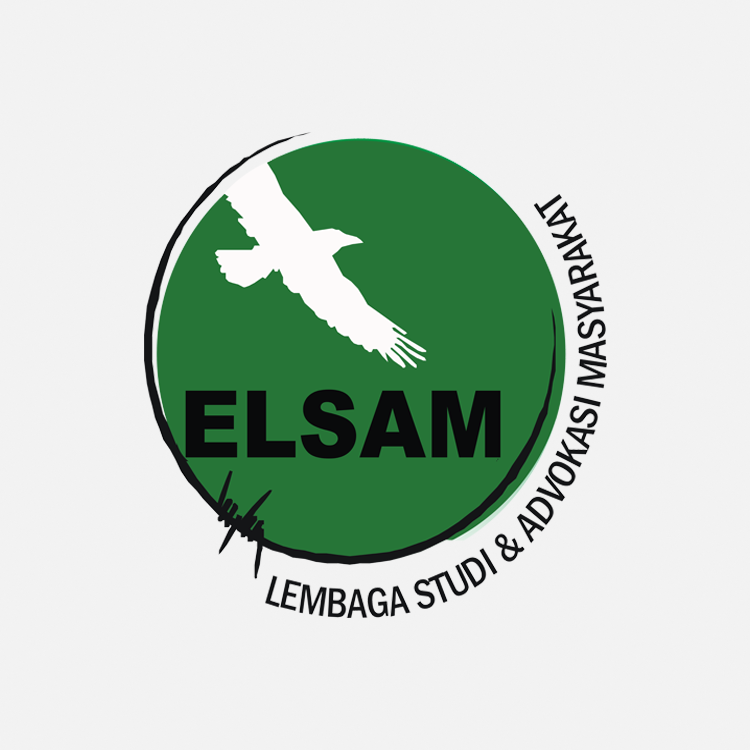
The Institute for Policy Research and Advocacy,a human rights organisation, based in Jakarta, established since August 1993. To actively participate in the efforts to develop, promote and protect civil and political rights and other human rights, as mandated by the 1945 Constitution and Universal Declaration of Human Rights (UDHR), has become ELSAM’s driving objective. At the outset, ELSAM’s spiritual commitment was to develop a democratic political order in Indonesia by empowering civil societies through advocacy and promotion of human rights.
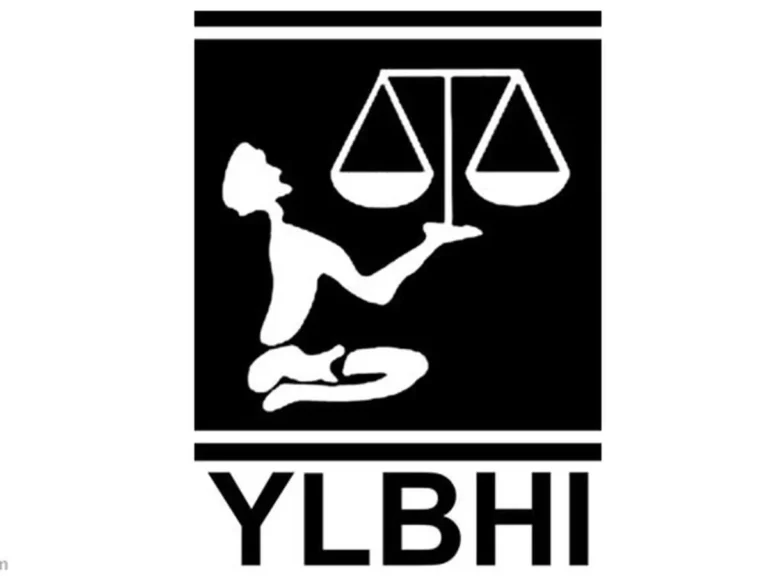
Indonesia Legal Aid Foundation/Yayasan Lembaga Bantuan Hukum Indonesia (YLBHI) was established in 1970 with
the vision and mission of establishing democracy and human rights, which lies upon a just, humane and democratic socio-legal system; a fair and transparent institutionalised legal-administrative system; an open political-economic system with a culture that fully respects human rights.

The rights of children are respected, protected and fulfilled in an enabling socio-cultural environment where effective state mechanisms are adequately developed to address the rights of all children, as set forth in the Convention on the Rights of the Child, as well as to redress any violations when occurred.
Established in 1987, SAMIN initially was intended to serve as a support organisation dealing with issues concerning child development. Through its first programme ‘promotion of alternative education for children’, SAMIN promoted issues related to child education, facilitated the formation of different action-groups and served as some national focal point for non- governmental organisations (NGOs) working on issues concerning child development in the country.



The Human Rights Working Group (HRWG) was established in 2003 and is a permanent coalition of Indonesian non- governmental organisations working on various human rights issues across the archipelago. HRWG is an independent non-profit organisation and does not have any political affiliation.
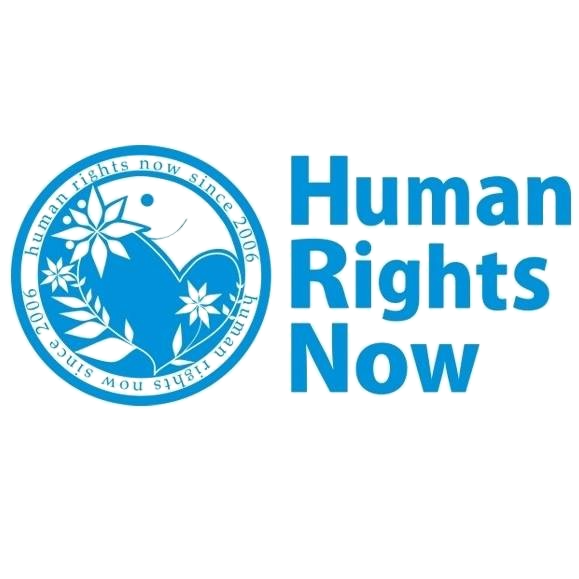
Human Rights Now (HRN) is an international human rights NGO based in Tokyo, Japan with UN special consultative status. HRN was established in 2006 by a group of human rights professionals, such as lawyers, scholars, and journalists, as the first international human rights NGO based in Japan. With over 700 members comprised of various human rights specialists, HRN works for the promotion and protection of human rights for people in the world, with a special focus on Asia.

Kazakhstan International Bureau for Human Rights and the Rule of Law (KIBHR) is Kazakstan’s nongovernmental human rights organisation. It was founded in 1993 and has its head office in Almaty and 10 branches in the regions of Kazakhstan. Essentially, KIBHR is an institutionalised and structured human rights network.
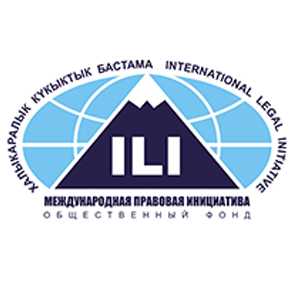

BDK was created to promote civil, political, cultural and economic rights and other social useful objectives, using monitoring and analysis tools for human rights evaluation in Kyrgyzstan. To achieve the goal of creating an effective monitoring system, targeted at human rights evaluation, BDK seeks to increase civil participation among youth and marginalized groups of population using the existing frameworks laid out by the Constitution of the Kyrgyz Republic

Pusat KOMAS was established in 1993 with the sole purpose of using creative media to promote human rights in Malaysia. Since then, it has carried out many campaigns and actively participated in different social causes among different communities in Malaysia. KOMAS has always felt proud to be on the forefront along with other civil society movements in the promotion and enhancement of democracy, equality and human rights in Malaysia.

SUARAM is a non-governmental organisation established in 1989 to monitor and advocate for the respect of human rights in Malaysia. Through its consistent and uncompromising work, it has established itself as one of the key human rights organisations, one to which Malaysians turn for information and support.

The Education and Research Association for Consumers Malaysia (ERA Consumer Malaysia) is a voluntary, non-profit and non-political civil society organisation.
It was founded in the state of Perak in 1985 and subsequently expanded into a national organisation, which is now based in Kuala Lumpur. ERA Consumer Malaysia’s programmes are designed and implemented to nurture alternative, people-centred, development initiatives at the community level through participatory accountable governance, socio-economic, sustainable agriculture and ecological endeavours to facilitate access and management of resources for people to develop their full potential and expand their choices in accordance with their needs and interests.

National Centre Against Violence (NCAV) is a pioneer organization that has been consistently working towards the elimination of domestic violence and sexual abuse of women and children in Mongolia.
NCAV is a community based, non-partisan and not for profit organization. We are unique in that we combine advocacy and service delivery.
The Psychological Responsiveness NGO operates with the goal on gender equality and equity, human rights, empowerment citizens, sustainable family and social development and the most concern on psychological counseling, including prevention and educating population of Mongolia on illegal drug use and HIV/AIDS/STI infection and to improve legal environment and respect human rights and conducting different activities within the framework of caring for public rights and social wellbeing.

MONFEMNET is a non-profit, non-partisan and non-governmental organisation, with a mission to serve as a strong driving force for the development of a national, broad-based, democratic, sustainable and transformative movement for women’s human rights, gender equality, substantive democracy, and social justice. MONFEMNET is based in Mongolia.
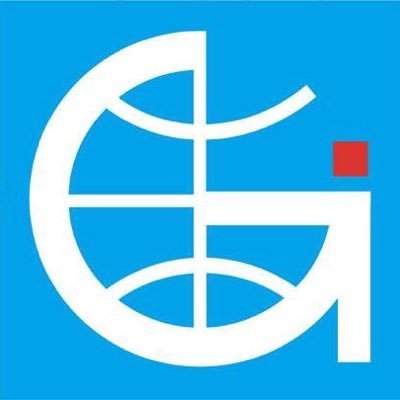
Globe International Center (GIC) is a non-membership, non-profit-making and tax-exempted non-governmental organisation, which was founded in 1999. Its mission is to sustain the Mongolian democracy, develop civil society, and disseminate information and knowledge. We carry out our activities under the motto: Knowledge is Power.
The main strategic concept is ‘We believe information makes changes. Informed people are powerful, so we strive to disseminate information using any means possible’.

The Center for Human Rights and Development (CHRD) works on projects aimed at achieving goals such as: improving national human rights mechanisms and structures; increasing foreign aid effectiveness; improving civil society’s contribution to Mongolia’s development and ability to use international human rights mechanisms and instruments.
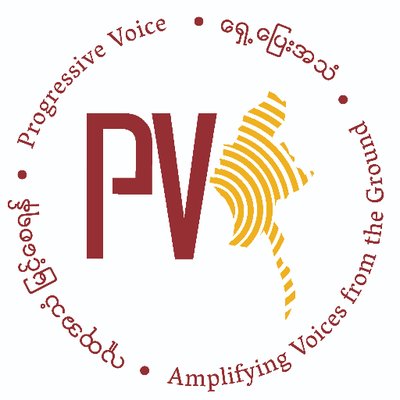
Progressive Voice is a participatory rights-based policy research and advocacy organization rooted in civil society, that maintains strong networks and relationships with grassroots organizations and community-based organizations throughout Myanmar. It acts as a bridge to the international community and international policymakers by amplifying voices from the ground, and advocating for a rights-based policy narrative.

Women’s League of Burma (WLB) was established on December 9, 1999 with the aim of increasing the participation of women in the struggle for democracy and human rights, promoting women’s participation in the national peace and reconciliation process, and enhancing the role of the women of Burma at the national and international level.

Equality Myanmar (EQMM), formerly known as the Human Rights Education Institute of Burma (HREIB), was established in 2000. The organisation facilitates a broad range of human rights trainings, advocacy programmes, and research and documentation projects which target civil society organisations and grassroots communities while engaging with local authorities, Government ministries, Members of Parliament and the Myanmar National Human Rights Commission (MNHRC). EQMM aims to contribute to the establishment of a peaceful, tolerant, and democratic society built on respect for dignity and human rights for all in Myanmar.

Youth Action Nepal (YOAC) is a leading national youth organization committed in the field of youth and development issues. YOAC prioritizes the essence of youth participation for sustainable and holistic development. Enhancing youth with their potential skill, knowledge and power is required for peaceful, democratic, disciplined and developed society thereby contributing a prosperous nation.

National Alliance for Human Rights and Social Justice (Human Rights Alliance), Nepal is a Coalition of human rights organisations dedicated to a cause of freedom, human rights, justice and peace in Nepal. It was established in 1999 by the initiation of some leading human rights organisations in order for bringing together like-minded human rights organisations to build a nationwide human rights movement conducive for all to realise their basic rights.

Ever since its foundation, Jcycn: Jagriti Child and Youth Concern Nepal has been actively engaged in advocacy and campaign for the right of children and youth. It has been upholding the issue concerning them such as child-friendly local governance, youth employment, participation, and safer migration, naming of a few.
Jcycn had laid the foundation of the culture of having child clubs registered through the legal process in Nepal, therefore, it has observed almost 25,000 registered child clubs across the country as a consequence of its action in the past.

The Informal Sector Service Centre (INSEC) is a leading human rights organisation in Nepal, established in 1988. INSEC started with the objective of protecting the rights of people engaged in the informal sector. The organisation has significantly contributed in the protection and promotion of fundamental rights of people in virtually all sectors. INSEC has been involving itself in campaigns, awareness creation and education programmes for the promotion of ‘all rights for all’.

The vision of the Community Self Reliance Centre (CSRC) is people with self-reliance and dignity. Its mission is to enhance the power of land-poor farmers leading land and agrarian reforms. Its goal is land for land-poor farmers and their secure livelihoods.

Karnali Integrated Rural Development and Research Centre (KIRDARC Nepal) is a Nepali Non-governmental National Organization, registered at District Administration Office, Jumla in 1999, and operating in 15 districts of Mid and Far Western Development Region and 6 districts of Central Development region. It is affiliated with Social Welfare Council, the regulatory body of Government of Nepal.
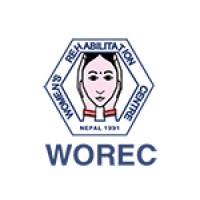
Women's Rehabilitation Centre (WOREC) is a non-governmental organization working for the protection and promotion of human rights. Established in 1991, WOREC is one of the leading national organizations that works to prevent violence against women, its causes and consequences, and to ensure economic, social and cultural well-being of women as well as other marginalized groups by promoting their access to rights and social justice. WOREC started her work with an objective to prevent trafficking of women and children and advocate for the rights of survivors.
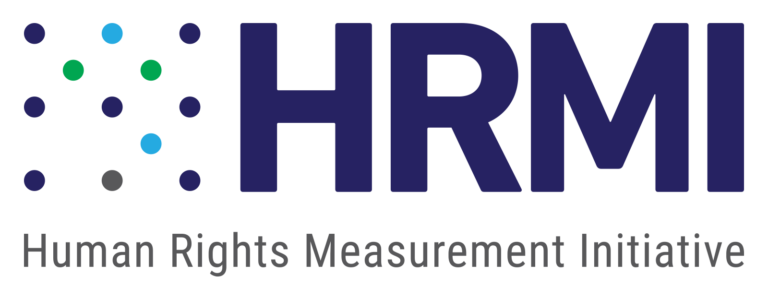
The Human Rights Measurement Initiative (HRMI) works to produce a free, easy-to-access database of metrics, summarising human rights performance in countries around the world. With a good set of measures it will be easier to improve human rights.
They aim to be comprehensive by producing metrics that cover the full range of rights embodied in international law, particularly the collection of international treaties known as the International Bill of Human Rights.
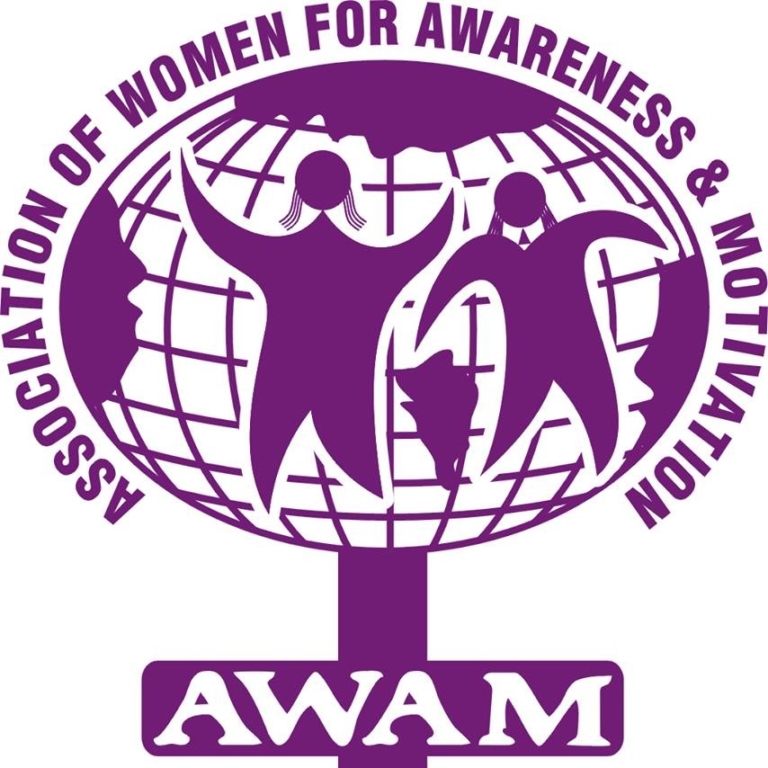
The Association of Women for Awareness and Motivation (AWAM) is working for the promotion and protection of human rights of disadvantaged groups particularly; women, people with disabilities and religious minorities. Being a right based organization; AWAM is engaged in advocacy and lobbying for the rights of marginalized groups. Therefore, AWAM raises voice for domestic legal framework, where laws and policies are not defined to deal with the issues relating to human rights of vulnerable groups, and makes advocacy efforts to engage with government for making necessary amendments in the public policies and laws leading to discrimination. The AWAM also monitors the implementation of national and international laws protecting human rights.

AwazCDS-Pakistan is a not for profit, non-governmental, developmental and human rights organization working for the socio-economic development and political empowerment of marginalized communities in Pakistan. AWAZCDS envisages a democratic, prosperous and peaceful society by developing and providing integrated and innovative solutions in cooperation with local, national, regional, and international partners, which foster action and change for securing the future of the marginalized community.

“The Awakening” is a right-based organization that believes that women and girls can make their own decision, exert control over their bodies and demand their rights by building their capacity in self-confidence, leadership and knowledge of women and girls about their rights and creating feminist platforms to challenge oppressive norms and power structures.

Defence of Human Rights and Public Service trust, shortly DHR Pakistan, is an independent non-governmental, non-profit organization that was born out of the personal experience of deprivation of human rights of the victims of enforced disappearance, which is a form of torture not only for the victims but for the families of the victims as well.
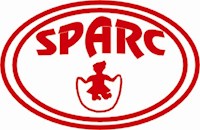
SPARC was established in 1992 to promote and protect child rights all over Pakistan. It was a pioneer organisation in the field of child rights and in raising related issues that were previously not part of the national debate. It undertakes in-depth research in this area; has published several books and brochures; drafted many laws, some of which have been adopted; and lobbies and advocates the rights of children, without discrimination. SPARC has consultative status with the United Nations Economic and Social Council (ECOSOC) and the UN Department of Public Information (DPI). It is also certified by the Pakistan Center for Philanthropy (PCP).

Potohar Organization for Development Advocacy (PODA) is a women’s rights non governmental organisation (NGO) working for the promotion and protection of human rights in rural areas of Pakistan since 2003. PODA’s vision is a democratic society based on education and gender equality for everyone. PODA’s mission is to facilitate the empowerment of marginalised rural communities, children, women and youth through formal and non-formal education, legal empowerment and human rights advocacy to build a locally democratic and globally peaceful society.
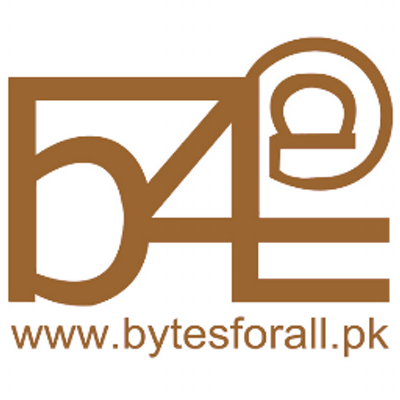
Bytes for All (B4A), Pakistan is a network of Information and Communication Technology (ICT) professionals and practitioners. B4A focuses on the relevance of ICTs and the implementation of ICT solutions for sustainable development and strengthening human rights movements in the country. B4A has been actively working since 2003 at the forefront of the Internet Rights movement and the struggle for democracy. B4A focuses on field projects and policy advocacy from the perspective of civil liberties, as well as on capacity building of human rights defenders (HRDs) on their digital security, online safety and privacy.

Forum for Dignity Initiatives is a research and advocacy forum working for sexual and gender minorities in Pakistan. We are a rights-based organisation that plays the role of an enabler—we strive for an equitable society for transgender people, sex workers, and girls and young women.
FDI Pakistan is a nonprofit, nonpolitical, non-partisan, nongovernmental, nonreligious civil society organisation promoting the rights of identified marginalised groups.

Established in 1999, Think Centre is an independent non-governmental organisation (NGO) in Singapore. It aims to examine, advocate and raise awareness on civil society issues related to political development, democracy, rule of law and human rights. In the last decade and a half, Think Centre has been instrumental in initiating and facilitating local civil society’s involvement in human rights awareness and promotion.

People’s Solidarity for Participatory Democracy (PSPD) is a non- governmental organisation based in Seoul, South Korea. We were founded in 1994 by activists, scholars and lawyers who were engaged in various democratic movements during the decades of military dictatorship. Until the 1980s, achievement of democracy was driven by people’s movements resisting government violence and oppression.
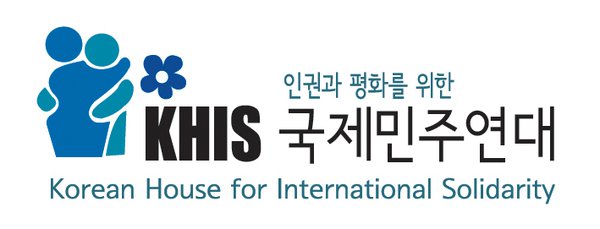
Founded in 2000, KHIS is a human rights advocacy group that works to establish and promote human rights and peace primarily within Asia and the general international community. Our activities include: monitoring Korean companies overseas for human rights violations; attending to problems that arise from multinational transnational enterprises; and dealing with any obstacles on the path to achieving democracy and human rights.

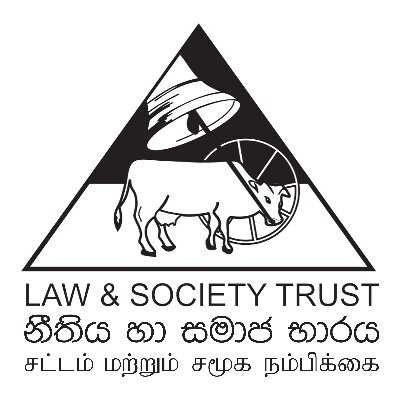
The Law & Society Trust (LST) is a not for profit organisation engaged in human rights documentation, legal research and advocacy based in Colombo, Sri Lanka, which was founded in 1982. Our aim is to use rights based strategies in research, documentation and advocacy in order to promote and protect human rights, enhance public accountability and respect for the rule of law. Some of our main activities include legal education and skills training, publications, rights awareness raising, dissemination of information, networking and coalition building at a national and international level.

INFORM was established in 1990 to monitor and document the human rights situation in Sri Lanka, especially in the context of the ethnic conflict and civil war. We work by reporting on the situation through written and oral interventions at the local, national and international level, rights advocacy and awareness building work, including work on policy change. Presently, INFORM focuses on Freedom of Expression (FoE), protection of human rights defenders (HRDs) and lobbying and advocacy on the promotion of human rights and accountability in Sri Lanka.

Right to Life Human Rights Centre (R2L), Katunayake, is a civil society organization aiming to promote and strengthen fundamental human rights, through providing legal and financial assistance to seek social justice. The organization started as “We in the Zone” in 1992 working on labour issues of employee of the Katunayake Free-trade Zone. Awareness was provided to employees on labour laws and regulations, and how to acquire justice through the legal framework.
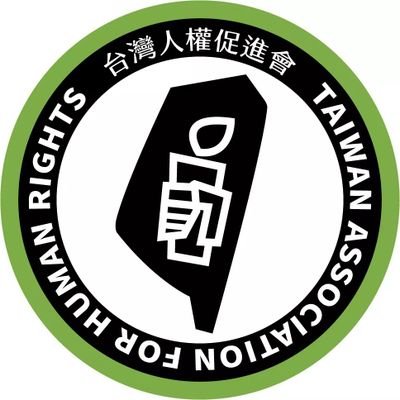

Covenants Watch (CW) is an NGO based in Taipei, Taiwan. It is committed to promoting human rights and equality for all people. Excluded from international society since the 1970s, the Taiwanese government has not been under the supervision of the United Nations system. Under these circumstances, CW strives to introduce a unique treaty review process that can hold the government accountable and ensures its domestic laws, policies and practices are aligned with international human rights standards.
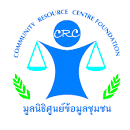

People’s Empowerment Foundation (PEF) is a Thai Foundation which was registered on 1 July 2008 under the Thai Foundation Law. PEF is a non-profit organisation which focuses on creating sustainable mechanisms for individual actors, community organisations, grass- roots coalitions and popular movements to work together to achieve social change. It promotes a wide range of human rights and human security issues throughout Thailand and Southeast Asia through civil society networks with community-based partner organisations. Within these networks knowledge, strategies and resources are shared aiming at positive social change. One of PEF’s main activity is strengthening the organisational capacity of the network/ partners by providing them with information, skills and knowledge training, capacity building tools, logistical coordination, and other assistance adapted to each group’s particular needs.

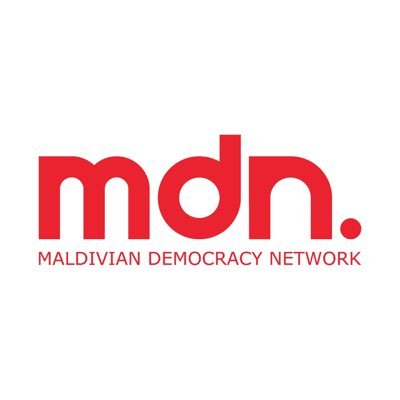
The Maldivian Democracy Network (MDN) is a non-partisan NGO which aims to promote human rights and the values and principles of democracy in the Maldives. MDN undertakes a wide range of activities under our broad mandate, including awareness raising, monitoring, reporting, lobbying and advocacy. Although based in the capital Male’, MDN is active across the country conducting workshops, trainings, monitoring and advocacy activities in various atolls.
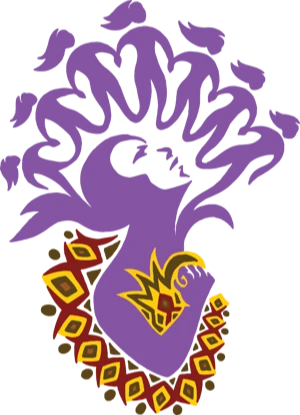
LILAK (Purple Action for Indigenous Women’s Rights) is an organisation of indigenous women leaders as well as feminists, anthropologists, human rights advocates, environmentalists and lawyers who support the struggle for indigenous women’s human rights. LILAK also does researches on the major issues affecting indigenous women.

Tanggol Kalikasan (TK) is a non-profit and non-governmental organisation involved in public interest environmental advocacy in the Philippines. It became a fully independent organisation in January 2001 after thirteen years as the environmental law office of the Haribon Foundation. Tanggol works with national and international partners and networks, and has its main office in Quezon City. It also maintains an area office in Lucena City (Southern Luzon Office).

TFDP began under a dictatorial regime. In the late 1960s, there was increased people’s action and struggle against the unjust economic and political order in the Philippines. At that time, only the elite decided the fate of the peoples and the nation, while the majority lived in misery and did not participate in the making of decisions affecting their lives.

Since its founding in 1986, the Philippine Alliance of Human Rights Advocates (PAHRA) serves as an advocacy centre and has been committed to work for the respect and promotion, protection and fulfilment of human rights. PAHRA is committed to work for the recognition and realisation of all human rights embodied in international instruments, such as the Universal Declaration of Human Rights, the International Covenant on Social, Economic and Cultural Rights, the International Covenant on Civil and Political Rights, the Declaration on the Right to Development, and the Universal Declaration on the Rights of the Peoples. PAHRA supports the implementation by the International Committee of the Red Cross of International Humanitarian Law embodied in Geneva Conventions and their additional Protocols.
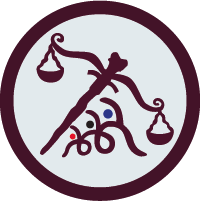
Balaod Mindanaw Inc. (Balay Alternative Legal Advocates for Development in Mindanaw, Inc.) is a non-stock, non-profit legal resource institution providing capacity-building and legal services to its partner communities on Resource Tenure and other Justice Issues primarily in Mindanao. It was formally established and registered with the Securities and Exchange Commission (SEC) on 11 August 2000 through the efforts of a small group of individuals, lawyers, paralegals and community organizers.

We are Dakila (nobiity) – Philippine Collective for Modern Heroism, a group of artists, students, and individuals committed to working together to creatively spark social consciousness formation towards social change.
We believe that nobility begins in the mind and ends in action. Despite appearances and public perceptions, the name aspires to nobility — the potential to evoke what is truly great and heroic in every citizen.
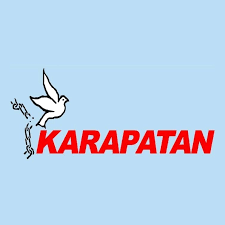
KARAPATAN is an alliance of organizations, groups and individuals working for the promotion and defense of human rights and people’s rights in the Philippines and at the global level. Its founders and charter members have been at the forefront of the human rights struggle in the Philippines since the martial law regime of the dictator Ferdinand E. Marcos.
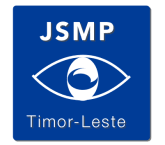
Judicial System Monitoring Program (JSMP) was established on 28 April 2001 with the objective to monitor the trial process in the Indonesian Ad Hoc Tribunal for human rights violations, and the Special Panel for Serious Crimes in Timor-Leste. Currently, JSMP is a leading non-governmental organisation (NGO) in Timor-Leste, monitoring the justice system and engaging in advocacy about legality, transparency, accountability, and strengthening the rule of law.

The Hukum, Hak Asasi dan Keadilan (HAK) Association was established in 1996 by a group of young Timorese and Indonesian activists. Its vision is a Timorese society which has prosperity, equality and no discrimination as to human rights, so that we may have everlasting peace. Its mission is to promote, protect and spread the principles of human rights throughout society and the state institutions of Timor-Leste.

Vietnamese Women for Human Rights (VNWHR) is an independent, non-profit, non-governmental organization, which acts to protect and promote human rights, especially women’s rights, and protect the interest and promote the role of Vietnamese women in the society. VNWHR is a founding member of the Vietnam Independent Civil Society Organization Network (VICSON).


